Q. Let's start by talking about play-action. How would you explain play-action to the average fan?
A. The best way to explain it is that offenses generally have a base set of core running plays, plays they run that fit their personality. Different offenses might have different core running plays, but whatever your core running plays are often times your play-action passes are off those actions. So whatever your base-core high-volume runs are, most teams have coordinated play-action passes off those to lean on that and utilize that in an effort to get chunks of yards in the passing game.
**
The Steelers grant the wish of a young fan from Jacksonville, AR.
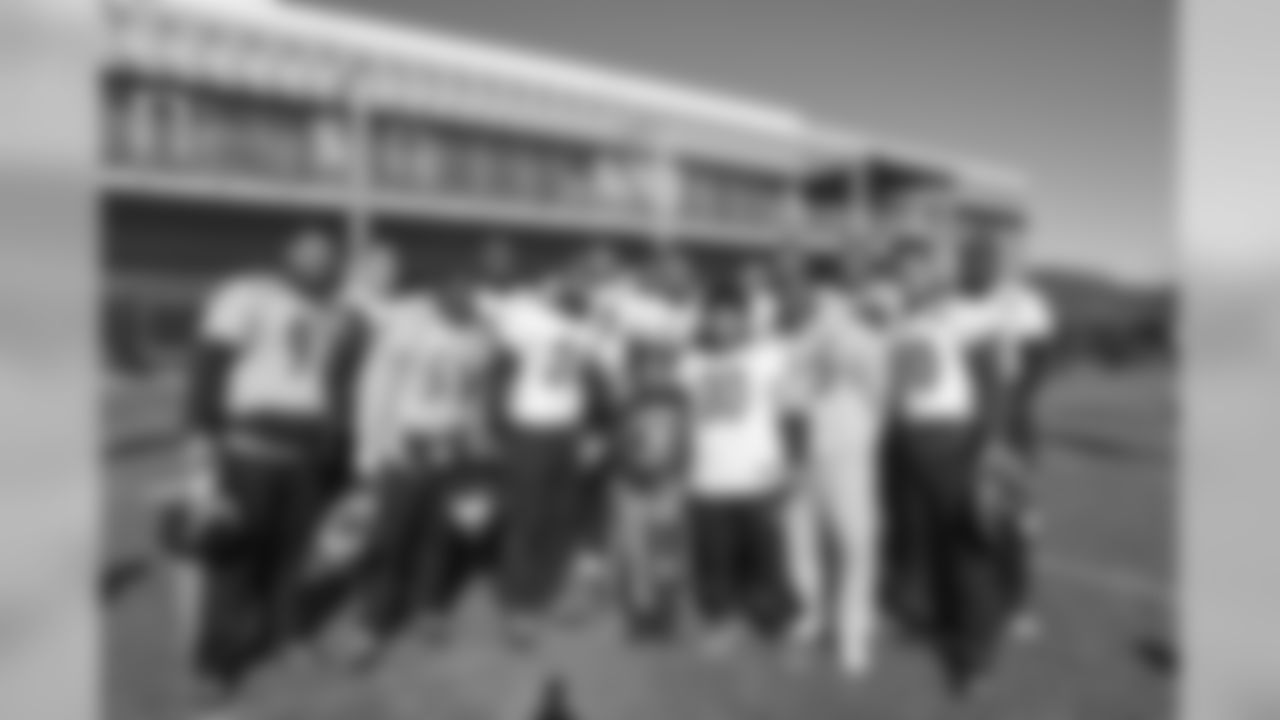

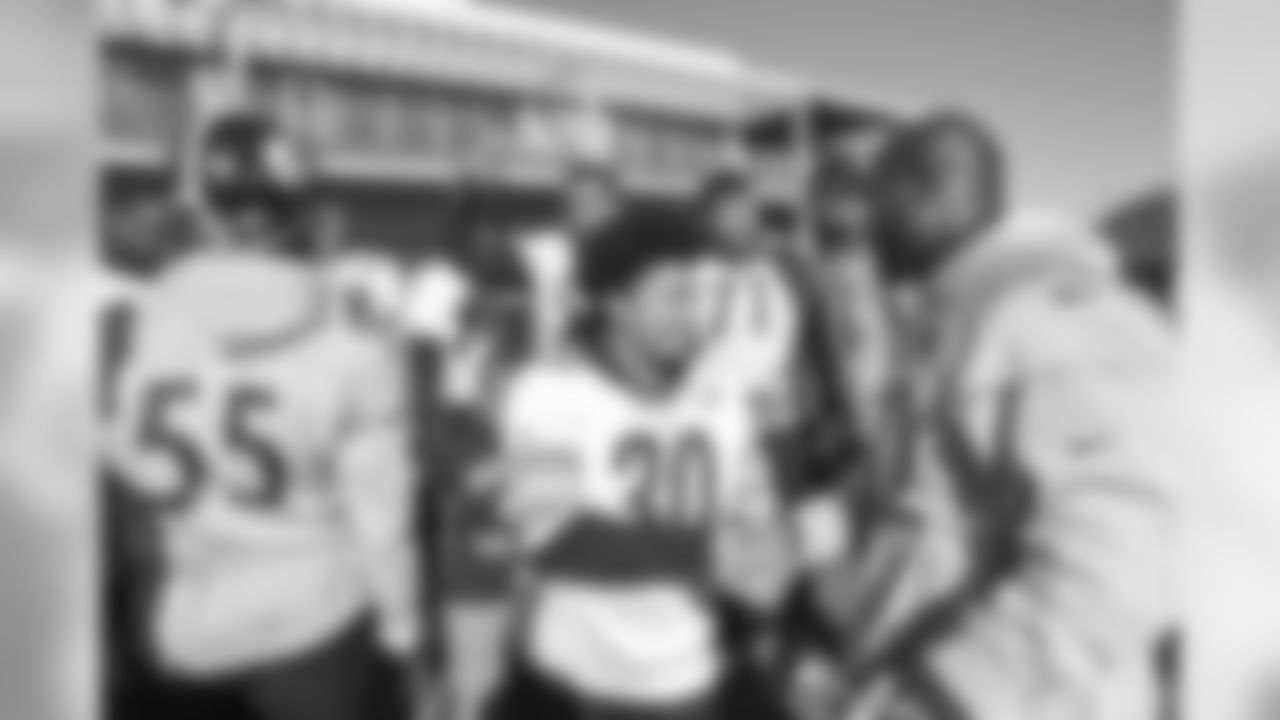
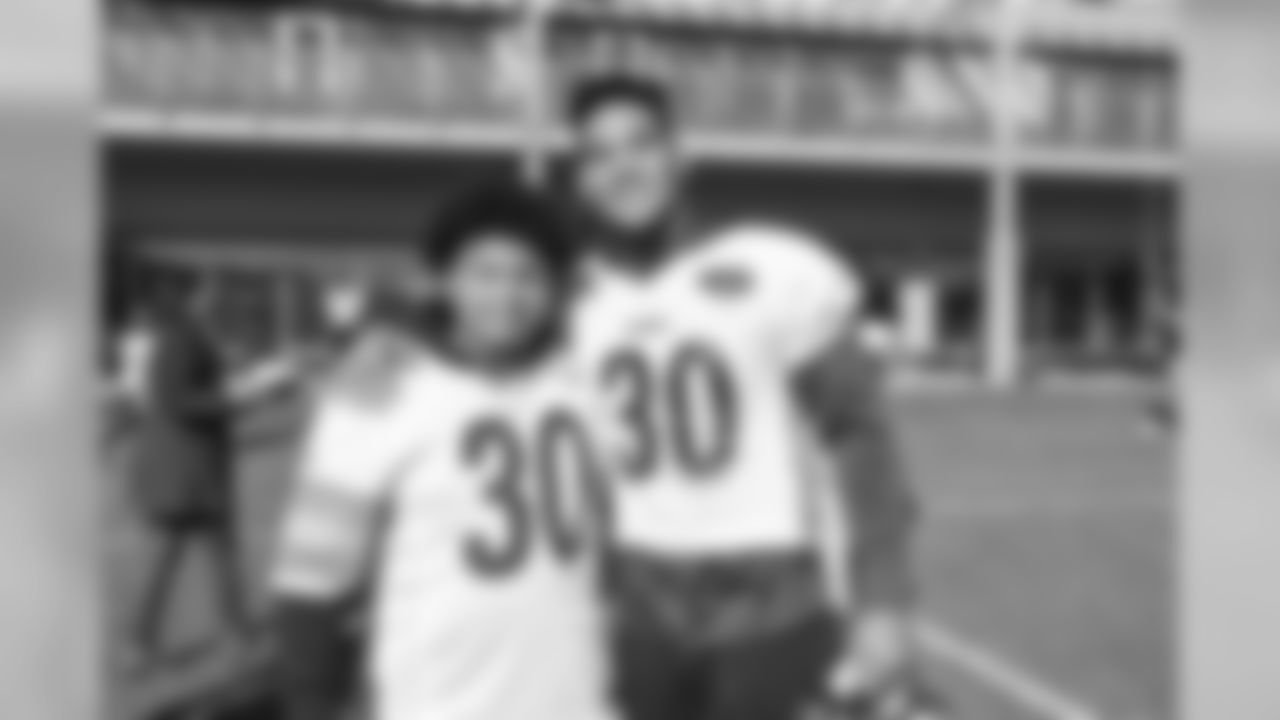
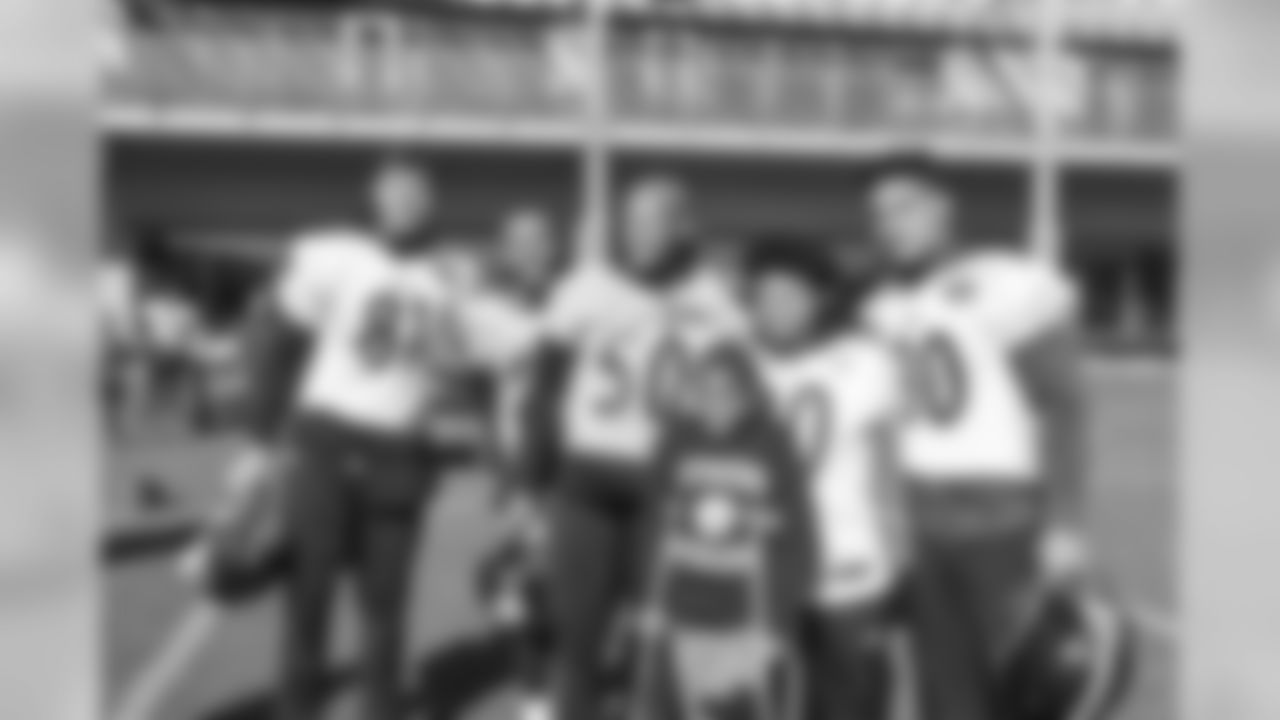
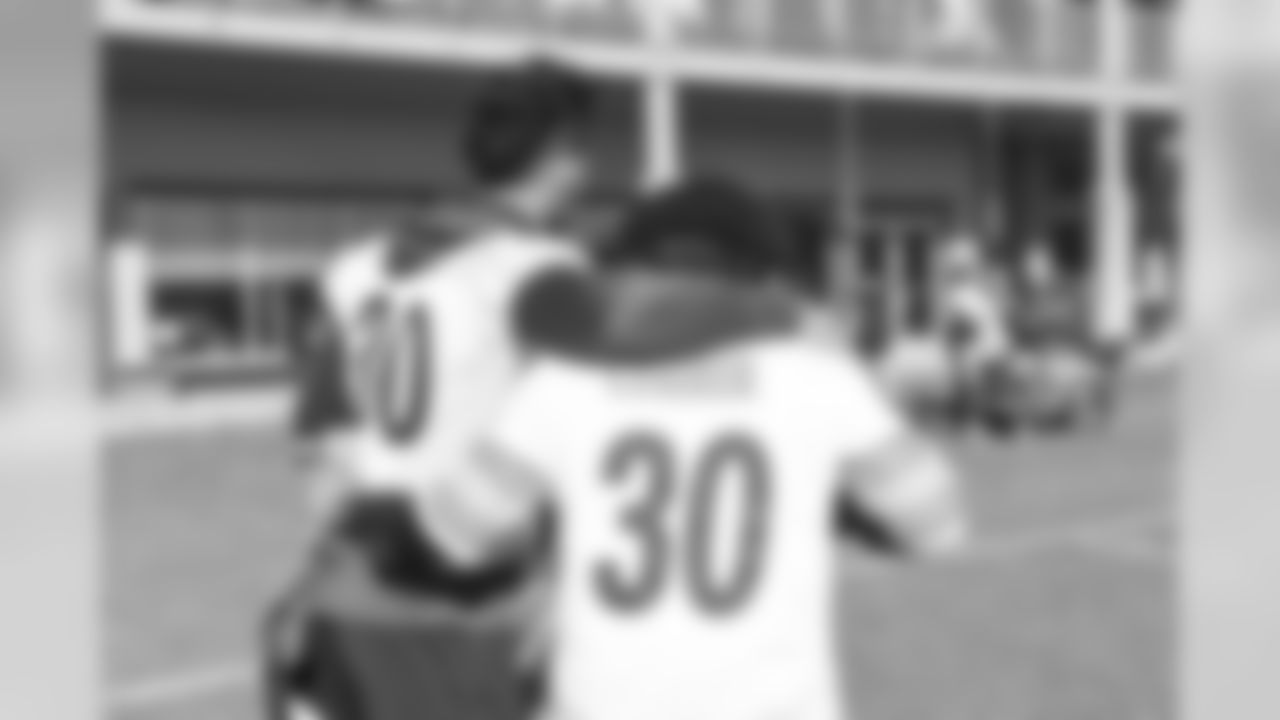

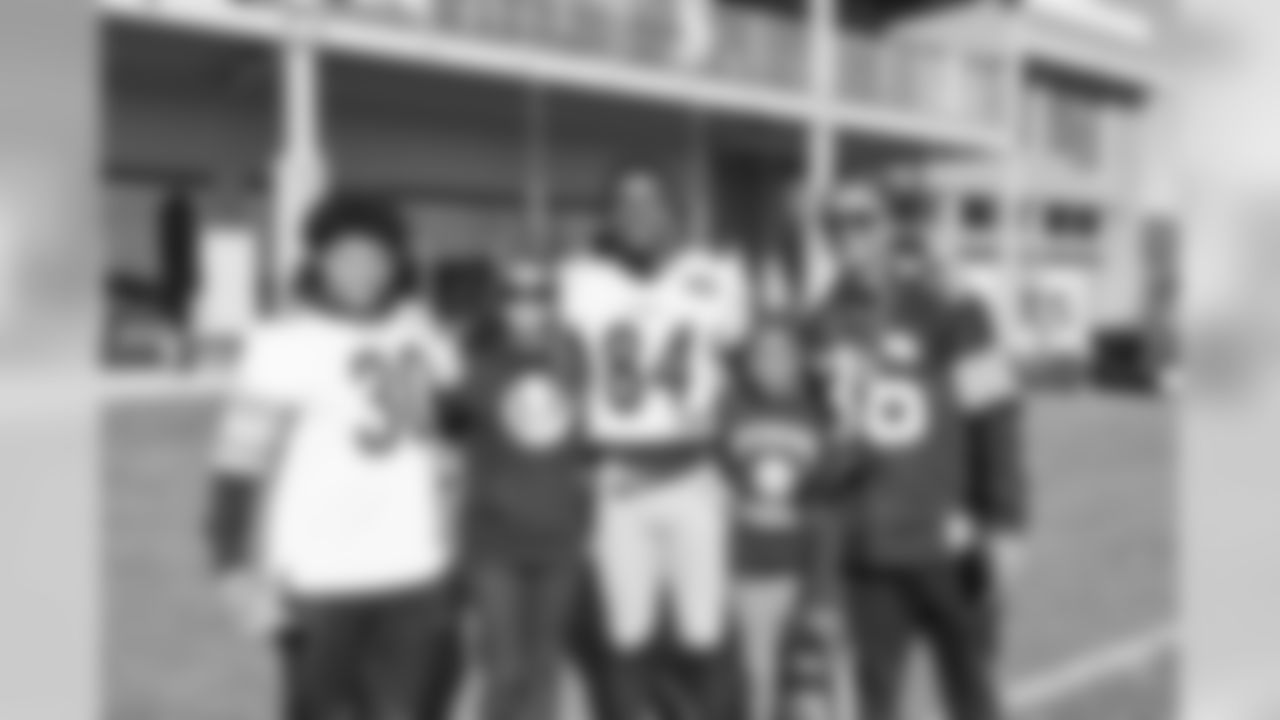
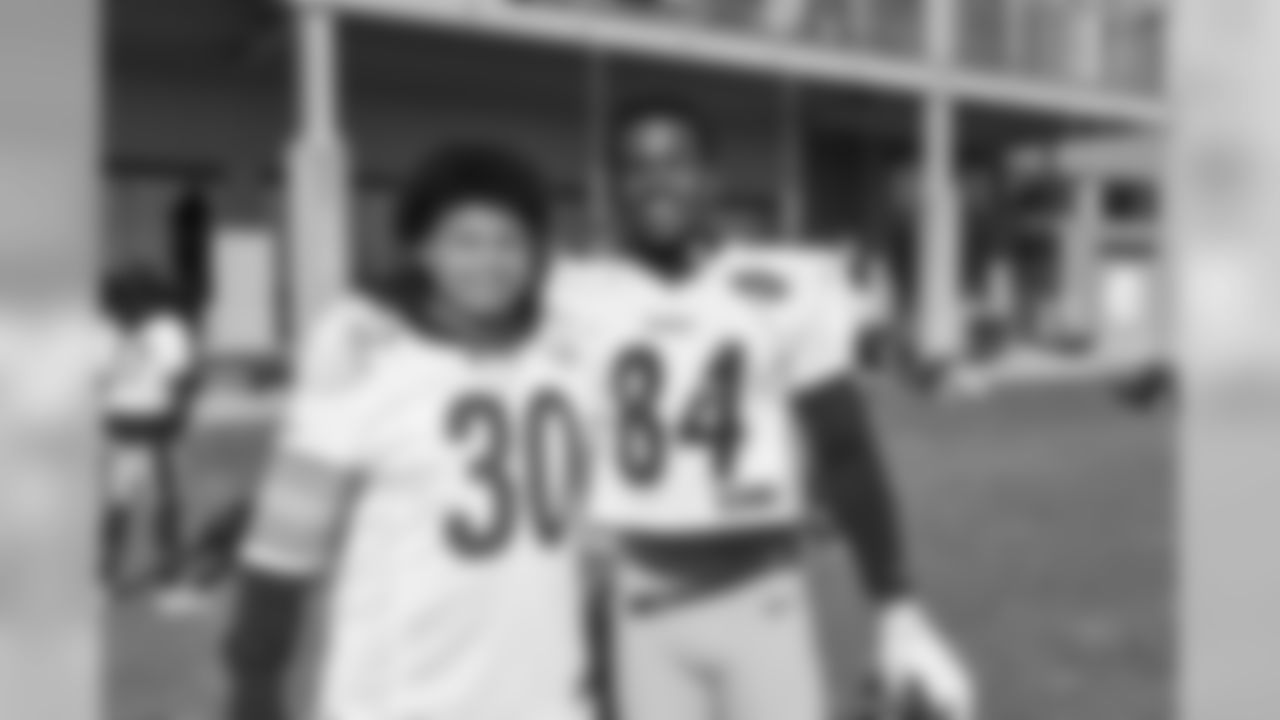

















Q. What is the offense trying to accomplish by using play-action on the way to getting chunk yardage in the passing game?**
A. Quite simply, they want their run plays and their run-action pass plays to look exactly the same to the defense. From a keys standpoint, they don't want the defense to know whether it's the running plays or the run-actions that accompany them. And if you're running the ball effectively, you have a chance to have a lot of success with the play-pass. But interestingly in today's NFL, teams often use the play-pass in an effort to set the run up. Meaning they'll lead with their play-action passes and then they'll infuse their run game to supplement it. It's just one of the interesting evolutions of today's NFL.
Q. Are there specific players on defense that play-action is designed to attack?
A. Second level defenders. Usually you think linebackers, but it's second level defenders. In a 3-4 scheme, it's not necessarily the outside linebackers, but it's the inside linebackers. Anytime safeties are down in the box as an eighth run defender, those guys are included as well. Those are the guys you're trying to affect with the run-action in an effort to gain an advantage in the passing game.
Q. What goes into an effective play-action fake?
A. Pad level of your offensive line, first and foremost. A lot of people, when they think about play-action, they think about the hand usage of the quarterback, the mesh of the exchange or the fake exchange. Often times good defenses, and particularly veteran second level defenders, they feel high-hat or low-hat along the offensive line long before that mesh point happens between the quarterback and the back. If you're talking effective play-action pass, you better start with the offensive line and make sure their pad level is exactly the same as it is on running plays.
Q. How do you teach the offensive linemen to handle those kinds of situations?
A. Often you teach your offensive linemen to block the run itself. Big picture, from a theme standpoint, all things being equal, you want your offensive linemen to block the run, and to teach it as such I think that's how you get the energy and the pad level that provides the illusion you're looking for.
Q. Are there any disadvantages to the offense when it comes to using play-action, such as the quarterback having to turn his back to the defense?
A. Certainly, and you mentioned one. It's one of the critical things in the play-action pass game: the quarterback turns his back to the defense or takes his eyes off the defense in an effort to sell it. And also, when you're talking about selling the run, or the offensive line blocking for the run, the linemen are susceptible to (pass-rush) games and twists and pressures and so forth from the defense, they're less light on their feet from an adjusting standpoint when you're loading up and selling the hardcore run-action. Like in everything, there is risk and reward, and that's part of the cat-and-mouse game that is football.
Q. Who are the good play-action teams in the NFL?
A. It really changes from year to year. Often if you ask me which are the good play-action teams, I'll tell you it's the teams that are running the ball well. That's usually the case. If you look at it historically, and by that I mean in recent years, it's those teams that are running the ball effectively. If you look at today's NFL right now, that's one of the ways Jacksonville is functioning very well offensively, better than they have in the past. Not a lot of new pieces. Blake Bortles is still the quarterback. Their run game is very effective, and I think their play-action pass game is benefitting from it.
Q. Who are the quarterbacks who are good at play-action?
A. I just think that's overblown. That's just something that color commentators talk about in-game. (Laughs) I don't know that anybody is outstanding and bowl-you-over exceptional in that area. I'm just being honest. I understand what you mean by the question, and I often hear commentators in that regard, but all the professionals – particularly in those situational moments when you're mis-directing a guy on third-and-1 on a hardcore play-action pass in the goal line or short-yardage area – all of these guys are good at it.
Q. When talking to your defense about play-action, what do you teach them to be looking for, how do you teach them to react?
A. The players who are run players first are to play the run, and the players who are pass players first are to play the pass. And then somewhere in the middle, we'll find each other. We'll pick up run players in the passing game, and we'll pick up pass players in the running game through natural instincts and keys. I think primarily that anytime you draw up a defense, and the ball is snapped some of the men on the field are primary run players first and some of the men are primary pass players first. They need to stay true to those responsibilities and play from there. I think that's how you coach a defense about being sound, because if you talk specifically about play-action pass then you're not defending the run, and if you talk specifically about defending the run, then you're not defending the play-action pass. You have to talk responsibility football, and different men have different responsibilities per call.
**
Q. This is your final game in the month of November, and so what do you expect from your team as the schedule heads into December?**
A. More than anything, we're not looking at too many big picture things right now. We just appreciate an opportunity to be at home. We've played a lot of football, but we haven't played a lot of football at home. We've been talking openly and planning and preparing to make home field a legitimate advantage for us. How do we do that? We start fast in all three phases; we make plays like we made against Tennessee – the big play to Antonio Brown early on, the interception on the first third down of the game on defense, a blocked kick in the kicking game like T.J. Watt provided for us. It gets our crowd in the game. It creates an environment where Heinz Field is the advantage it's intended to be. We've been focused and open about that as we get toward the latter part of November, and to me that's a critical discussion because we have home games down the stretch.
Q. Can you plan for that type of a fast start, or does it just result from guys being prepared for the start of the game?
A. I think part of preparing for it is openly talking about it, and taking the mystical and making it real and tangible. How do we create an atmosphere where it's a hostile environment? A fast start is required to get our fans engaged. Those are the discussions we're having. I think it's good for growth, and I also think it helps our team understand what that environment means to them from a preparation standpoint. Our defense has been challenged all week to communicate in a hostile environment, because if it's hostile for the opposing offense it's also hostile for our defense, and the worst thing we could do is miscommunicate or blow assignments because we can't communicate or function in the environment that we helped to create. So we have a lot of work going on relative to playing at Heinz Field because we've been on the road a lot to this point in the season.
Q. Last week, the defense posted five sacks and four interceptions in a win over Tennessee. Do you sense that there's something special developing with that unit?
A. You can if you're looking for it, but I just don't know that I am. What I do know that was special about that performance is that it grew as the game went on, as it should. And that's what I mean about some of the things environmentally. If we're playing well, good play breeds good play. Our fans get excited about third downs when we're picking off the ball and sacking them on third down. It makes it more difficult for them to operate on subsequent third downs. It changes their demeanor in terms of how they attack us on a third down. It might make our opponent run a draw or throw a screen when facing a third-and-long rather than throwing the ball downfield. All of that lends itself to the environment we want to create.
Q. When you reviewed the video from that victory over the Titans, what did you find that the offense did well in scoring 40 points?
A. Much like we talked about the defense, I thought there was a cumulative effect of play, which means as the game wore on we became increasingly effective. I thought we adjusted to some of the unforeseen things we got from Coach LeBeau, and you know when you face a Coach LeBeau defense you're going to get some unforeseen. I thought as the game wore on, that was evident in our play. That's what you're looking for. You want to be a group and a team on the rise largely at this time of the year, but you want to be a group and team on the rise largely within games this time of the year, because you realize those waning moments often times will define us, especially when it's good on good.
Q. The assumption was that you used a lot of no-huddle in that game. Is that true?
A. Often times we'll run no-huddle to undress, to gather information for a variety of reasons. Not for the reasons people traditionally believe, and that's why I always make that point. People probably make more out of no-huddle than what needs to be made out of it in today's NFL. Every offense in today's NFL is no-huddle capable. They need to be. They need to be able to change the pace. They need to be able to dictate flow. They need to be able to make the defense operate and communicate under duress.
Q. What kind of information can you gather by utilizing no-huddle?
A. When you're at the line of scrimmage, the defense doesn't know when you're going to snap it, but they have to be prepared for when you're going to snap it. If you're at the line of scrimmage and there's 20 seconds on the play clock, the defense has to be prepared to play. If you choose to snap the ball at five seconds, then there's 15 seconds when you're at the line of scrimmage and get to gather a little information if you can. Or if you choose to snap it at 17, then they better be ready for that. No-huddle doesn't necessarily mean an increase in pace, it just means an increase in readiness from the defense's perspective and the potential for information gathering associated with that.
Q. How is Green Bay a different team without Aaron Rodgers?
A. They're not schematically. They do similar things. They have a lot of belief in Brett Hundley and his preparedness and their system of football. But the bottom line is Aaron Rodgers is one of the best in the world at what he does and has been for some time. And when you miss that, regardless of whether the schematics change, the outcome of routine plays change because of what he can infuse in terms of certain situations. That's just the reality of it. The consequences of his absence are untold, but it doesn't change anything in terms of how they approach the game schematically or what they do from a preparedness standpoint.
**
Q. Last night 27 former Steelers players, coaches, and contributors were inducted into the Hall of Honor as part of the inaugural class. For the current team, is that just elevator music, or is it something more?**
A. I think it means different things to different people. What I mean by that is you'd be surprised by the wide range of interest in football history within professional football players. Some guys grew up on it. Some guys are 25 years old and know who Rocky Bleier is instantly when they meet him, and they should have no reason to because Rocky was retired before they were born. Some guys don't know who played 10 years ago because they were into skateboards and Pokémon and those things when they were 10. Really, it's individual. It depends on the man. One of the things I really enjoy is regardless of where you fall on the spectrum, our guys during their stay here really gain an appreciation for the standard provided by those men. Our guys enjoy learning about their story, and not learning about their story formally like you would do on a "30 for 30," but engaging with those men, going to dinner with those men, and allowing those men to come into their lives. We're blessed because those guys give of themselves to us and share stories of their journey, and that's the most beautiful thing about it. You can sit back and watch a JuJu Smith-Schuster talk to a John Stallworth. JuJu has no idea what John Stallworth did as a player. He doesn't even know what jersey number John Stallworth wore, because John was well retired before JuJu played ball. But he knows that the guy is a Hall of Famer, and he knows that when he shares wisdom with him he does it from the heart. And it's cool to watch those exchanges, whether or not JuJu has a frame of reference of who or what John Stallworth did as a player.














